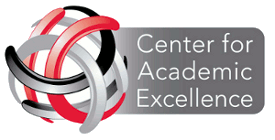Event Title
Mutual Mentoring: Moving Beyond One-Size-Fits-All Mentoring
Location
Dolan School of Business Dining Room (104A)
Start Date
30-5-2013 9:00 AM
End Date
30-5-2013 11:45 AM
Session Type
Interactive Session
Description
Mentoring offers a vital contribution to a successful academic career, particularly for women and faculty of color. The most common form of mentoring has been a "traditional model," which is defined by a one-on-one relationship in which an experienced faculty member guides the career development of an early career faculty member. Recent literature, however, has indicated the emergence of new, more flexible approaches to mentoring in which faculty build a network of "multiple mentors" who can address a variety of career competencies. In this interactive session, you will identify potential roadblocks to success in an academic career; explore both traditional and emerging models of mentoring; define your current mentoring network and what it might be, drawing on a range of examples from across the disciplines and career stages; and share best practices in mentoring.
Topic Designation
Mentoring
Presenter Bio(s)
Dr. Mary Deane Sorcinelli is Associate Provost for Faculty Development, Professor of Educational Policy, Research, and Administration, and Director of the Center for Teaching and Faculty Development (CTFD) at the University of Massachusetts Amherst. Prior to joining UMass Amherst, she served as Director, Office of Faculty Development, Indiana University Bloomington (1983-88).
Under Dr. Sorcinelli’s leadership, the CTFD was cited as a Model Faculty Development Program in the U.S. and Canada (2006), and was awarded two Innovation Awards from the POD Network (2007, 2002) and a 2000 Hesburgh Award for Faculty Development to Enhance Undergraduate Teaching and Learning.
Dr. Sorcinelli is a well-known researcher with over 100 articles and book chapters in a wide range of sources. Selected co-authored books include Mutual Mentoring Guide (2009), Creating the Future of Faculty Development (2006), Heeding New Voices: Academic Careers for a New Generation (2000), Assigning and Responding to Student Writing Across the Disciplines (1997), and Developing New and Junior Faculty (1992).
Dr. Sorcinelli has directed a number of grant-funded projects including Fund for the Improvement of Postsecondary Education (FIPSE), Lilly Endowment, William and the Flora Hewlett Foundation, and Microsoft. She is currently Co-PI of a second $400,000 grant from the Andrew W. Mellon Foundation to support a campus-wide Mutual Mentoring Initiative. The initiative was awarded the 2011 Robert J. Menges Award for Outstanding Research in Educational Development from the Professional and Organizational Development (POD) Network in Higher Education. It also received POD’s 2007 Innovation Award.
Dr. Sorcinelli is also the External Co-Evaluator of UM ADVANCE: Advancing Women, Transforming the University, Investing in a Culture of Inclusive Excellence. National Science Foundation Institutional Transformation ADVANCE Grant, University of Maryland, 2010-2015; an Advisory Board Member of MSU ADVANCE: Advancing Diversity through Alignment of Policies and Procedures. National Science Foundation Institutional Transformation ADVANCE Grant, Michigan State University, 2009-2013; and Expert Advisor to Impact of Professional Development Programs on Future STEM Faculty: A Mixed-Methods Longitudinal Study. National Science Foundation’s Course, Curriculum, and Laboratory Improvement Grant, University of Wisconsin Madison, 2008-2012.
Dr. Sorcinelli has participated actively in her profession. In 2006 she was honored with the Bob Pierleoni Spirit of POD Award for outstanding lifetime achievement and leadership in the enhancement of teaching, learning, and faculty development. She also served as President/Executive Board Member of the POD Network, 2000-04 and as Senior Scholar to the American Association for Higher Education (AAHE) from 1999-2001.
Dr. Sorcinelli has worked in international settings that include Canada, China, England, Germany, Greece, Puerto Rico, Saudi Arabia, and Taiwan. She visited the American University in Cairo, Egypt as a Distinguished Visiting Professor, and was awarded a Whiting Foundation Fellowship to the National University of Ireland Galway.
Network Map_Sorcinelli (2013).pdf (23 kB)
Bibliography_Sorcinelli (2013).pdf (67 kB)
Mutual Mentoring: Moving Beyond One-Size-Fits-All Mentoring
Dolan School of Business Dining Room (104A)
Mentoring offers a vital contribution to a successful academic career, particularly for women and faculty of color. The most common form of mentoring has been a "traditional model," which is defined by a one-on-one relationship in which an experienced faculty member guides the career development of an early career faculty member. Recent literature, however, has indicated the emergence of new, more flexible approaches to mentoring in which faculty build a network of "multiple mentors" who can address a variety of career competencies. In this interactive session, you will identify potential roadblocks to success in an academic career; explore both traditional and emerging models of mentoring; define your current mentoring network and what it might be, drawing on a range of examples from across the disciplines and career stages; and share best practices in mentoring.


